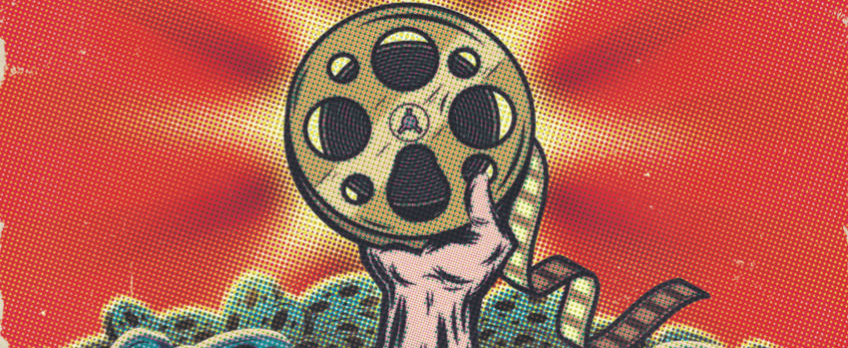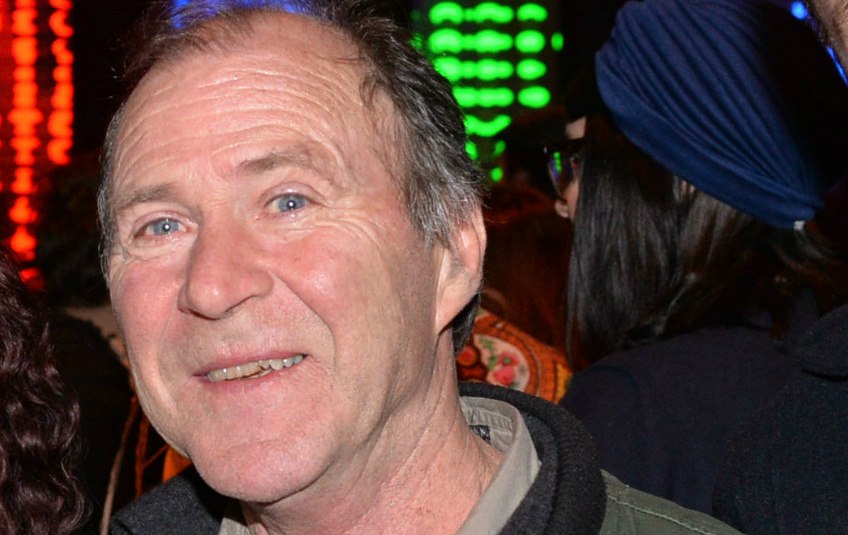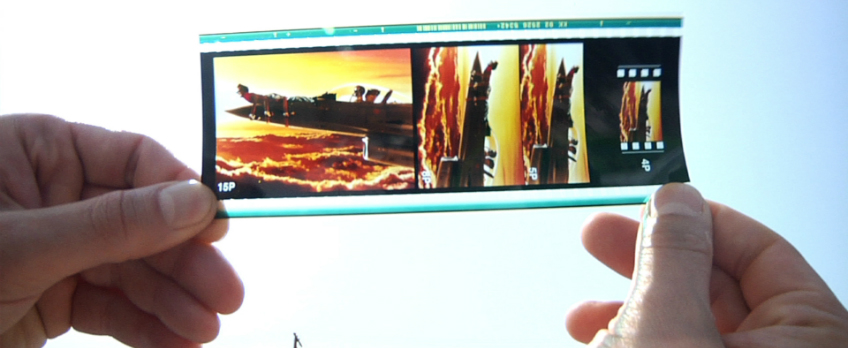Meet Dave Thomas, MIFF's Technical Manager | Part 2

Posted by Michelle Carey, MIFF Artistic Director
David Thomas is MIFF’s Technical Manager and Freight Handler. Dave celebrates 30 years at the Melbourne Film Festival this year, so we thought it was time you got to know him a bit; so I interviewed him – last week we ran part 1 of that epic interview. Read on for the conclusion.

Michelle: You’ve travelled to film festivals internationally. Do you have a favourite?
Dave: I’ve been to the London Film Festival a couple of times. I’ve been to the Indian film festival, which used to be run in regional cities every other year, and every other year they would run them in Delhi. They were great festivals. I introduced Paul Cox at one of them. Because I was a delegate representing the Melbourne Film Festival they would always give you a task, and you’d always end up on a panel or two. This particular year Paul happened to be there. We were staying in the same hotel. They put us up in a five-star hotel!
Michelle: Film or digital?
Dave: Oh as a traditional die-hard, film obviously. From an operator point of view, from the operating and projection room, digital is the bee’s knees, it’s easy. You set playlists and you hit play and monitor everything. Once it’s going, it won’t stop. I just did a show, a session at the Melbourne International Animation Festival, which was a series of Disney cartoons, 40s cartoons. There was eight, I think, in the program; three or four were on film and the rest were on digital. So we were going backwards and forwards: we did chronological order and that’s not necessarily the order the content arrives, so I think I ran a DCP of one cartoon and then onto the projector for two and then back to DCP. It was interesting watching the contrast. There was almost no difference in terms of colour and brightness, but the grain versus pixel element was noticeable on film. It just had an ever so softer look to it, the film.
Michelle: Do you think film has an aura?
Dave: As well as the odd scratch or two, yeah it does. It kind of has a sort of a magic to it. But at the end of the day, from a cinema-goers' point of view, you’re still in a darkened room, with an anonymous audience, watching a larger than life image, and it’s still cinema, as such.

Michelle: And you yourself have quite a nifty collection of 16mm projectors.
Dave: Yeah, about 16 of them!
Michelle: And people often come to you and ask to borrow them. What do you love about 16mm?
Dave: Oh, well, it was so much easier. We used to have to put 16mm into some of the venues, years ago. I mean 35mm, they’re bigger and heavier, less portable. 16mm was totally accidental. They’ve mainly been used in art galleries, in exhibitions and spaces for endless loop projection. The first artist I did it for was Tacita Dean. I think we needed 11 or 12 projectors. At the time it was Anna Schwartz’s gallery. We needed to find the projectors, and I already owned a couple. Then I ended up buying a few more, and then gradually started collecting them, and now I’ve ended up with 16. And gradually I’ve been upgrading them, buying later models; and the older ones, the green ones, now just become spare parts.
Michelle: Do you have any hobbies when you’re not at work?
Dave: Building. Gardening is kind of something I do because I have to. But yeah, messing about, bit of renovation.
Michelle: Very hands on. Because you studied installation engineering?
Dave: I did. Electronic engineering at RMIT for three years. I dropped out of that in the last year, it wasn’t really my thing. I dropped down to a technical officers' course. Which took about another five years to complete part time. That’s what I am. Diploma of Technology (AV & Media). It was one of the first AV Media courses that was set up. It was during the Whitlam government period when schools were building TV studios and libraries. But the libraries were integrating AV into their systems. They soon realised there were no technicians who were going to be able to install the equipment, run the equipment and maintain the equipment so these courses started springing up.
Michelle: What advice do you have for someone who might want to become a projectionist or work on the technical aspects of cinema?
Dave: It’s so IT now. It’s almost impossible because there’s no projectionists as we know them anymore. Generally speaking, equipment is now maintained by service companies. Very little goes wrong, but just upgrading software and things like that. Playlist, ingests, all that stuff, can be done by management, and it is. Playlists are generally set up and the entire shows nowadays are run from the TMS (the Theatre Management System) which is hooked into the ticketing system. So once these things are allocated to a particular screen at a particular time, the TMS automatically will send the necessary files to the appropriate server and they'll play. Short of a festival context, in which we will have operators there for all our sessions, there might only be an operator in a cinema one or two days a week just to ensure that all the files are ingested, that the KDMs are unlocked. Even KDMs, nowadays, at the big chains the KDM automatically goes in from overseas.
Michelle: What about your team. What do they do throughout the year?
Dave: It just becomes harder and harder. My team is diminishing because they don’t have ongoing work. Most of my guys, who were working for circuits or who were working for Village who came from Rivoli or Greater Union or Nova, now they don’t go back to them anymore. They’ve had to find other employment. It makes it harder and harder to grab them at the end of every year. And that will get harder and harder; it’s just been sheer luck at the moment.
Michelle: There seems to be a lot of comradery and loyalty among you. You seem to know every projectionist in town.
Dave: I’ve been around a long time!
Michelle: Yeah but it seems you are a pretty tight-knit group.
Dave: It is, but it’s a diminishing group. And we do meet socially outside of the festival at other times of the year, so it’s not as if we just come together for this four weeks or whatever. We’ve known each other for a long time.
Michelle: I guess when you work such long hours together you get to know each other well.
Dave: And you know some of them go back to when I was working casually for Kino and Nova, and I’ve known them since then. Guys who were working at Greater Union. Darren Brown, for example. We go way back. I worked with him at Greater Union when he was manager for Village. And then we maintain the loyalty, which is great. You get the feeling that they would almost do anything for you. But on the other hand I would do basically anything for them as well. It goes both ways.
Michelle: Absolutely. That’s why I think it’s really special. Is there a particular film you’re hoping to watch at MIFF this year?
Dave: I tend to pick up on favourite titles. I like to watch some of the Cannes films and I’ve already seen a couple that have been on the list when I was in London, like High-Rise. And, what was it? Something about a fish.
Michelle: Little From the Fish Shop.
Dave: I thought what a great title! And it’s a Czech film, that looked pretty good. That’s the weirdest title so far.
Michelle: I hope you get to see it. Is there anything else you wanted to say?
Dave: It’s odd isn’t it? Thirty years and I’m still with the festival and I guess that’s largely because at this time of year I haven’t had anything else to do.